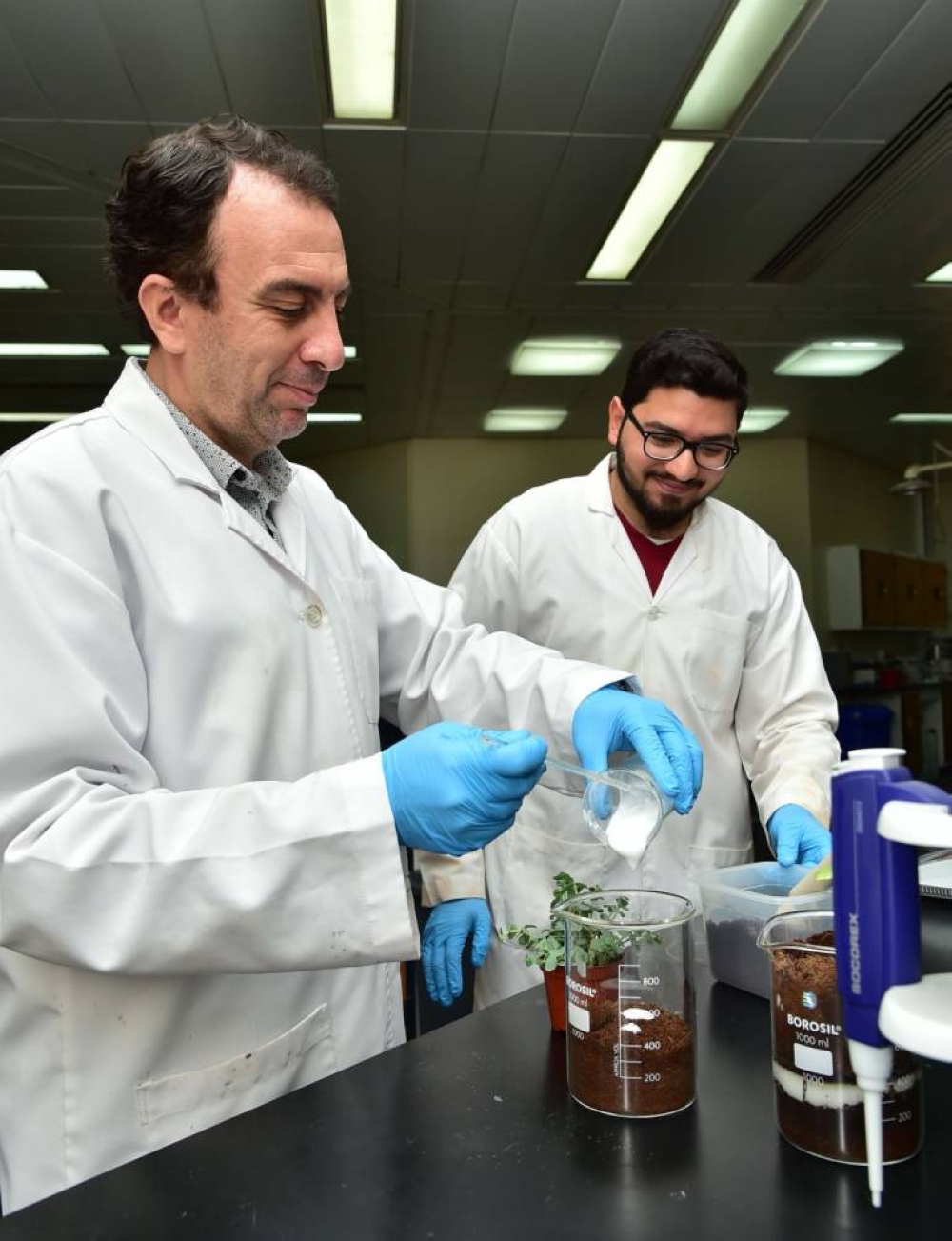
Qatar University (QU) has launched a research project aimed at introducing hydrogel agriculture for greenhouse farming in Qatar for the fi rst time. According to an article ‘Hydrogel Agriculture to Support Food Security in Qatar’ written by Prof Alaa AlHawari, department head of Civil and Architectural Engineering, College of Engineering, QU, one of the successful methods in promoting agricultural sustainability is the employment of hydrogels that are capable of absorbing water manifold their weight, retaining nutrients, and preventing soil erosion. Prof AlHawari notes: “Compost soil used in greenhouses has low retention of water.
If compost soil is to be used for agriculture in an arid climate such as Qatar, the water retention of such soils should be enhanced to maintain a low food cost.” “Laboratory and fi eld experiments have demonstrated that hydrogel is a smart technique that could provide a water reservoir in soil that can be tapped into by plants in hot climate areas. Hydrogel helps to grow more food while using less water by mixing with the soil to capture the irrigation water near the plant; this will help the plants to grow more steadily over time,” he explained.
The QU project suggests a novel hydrogel material, made of up to 99% weight of water and environmentally biodegradable, nontoxic and inexpensive materials. The hydrogel material was pilot tested at actual greenhouses in Agrico farm, a renowned farming facility in Qatar. The implementation of hydrogel agriculture is based on sandwiching a thin hydrogel layer inside the compost bags used in Agrico farm. The presence of this layer assists in reducing water losses by increasing the water retention capacity of the grow bag. The growth of plants, water and nutrients retention, and crop production for hydrogel-containing samples and control samples were closely monitored throughout the plantation process for comparison process.

